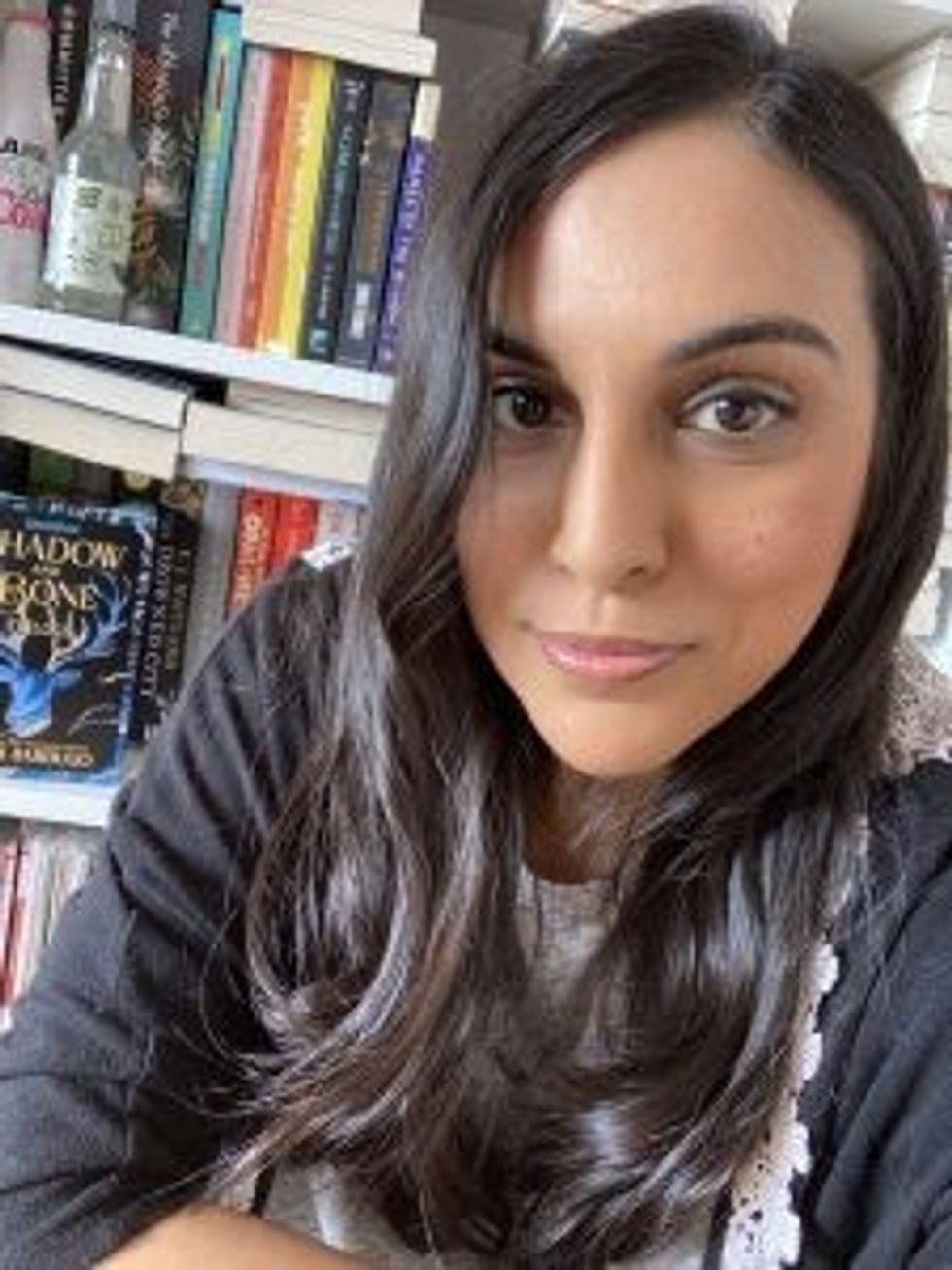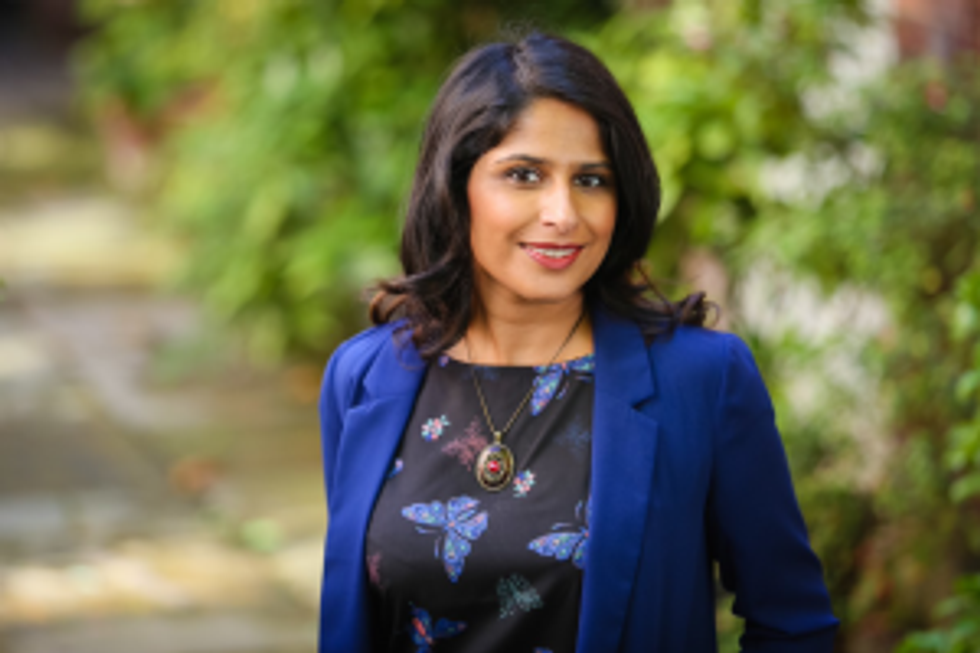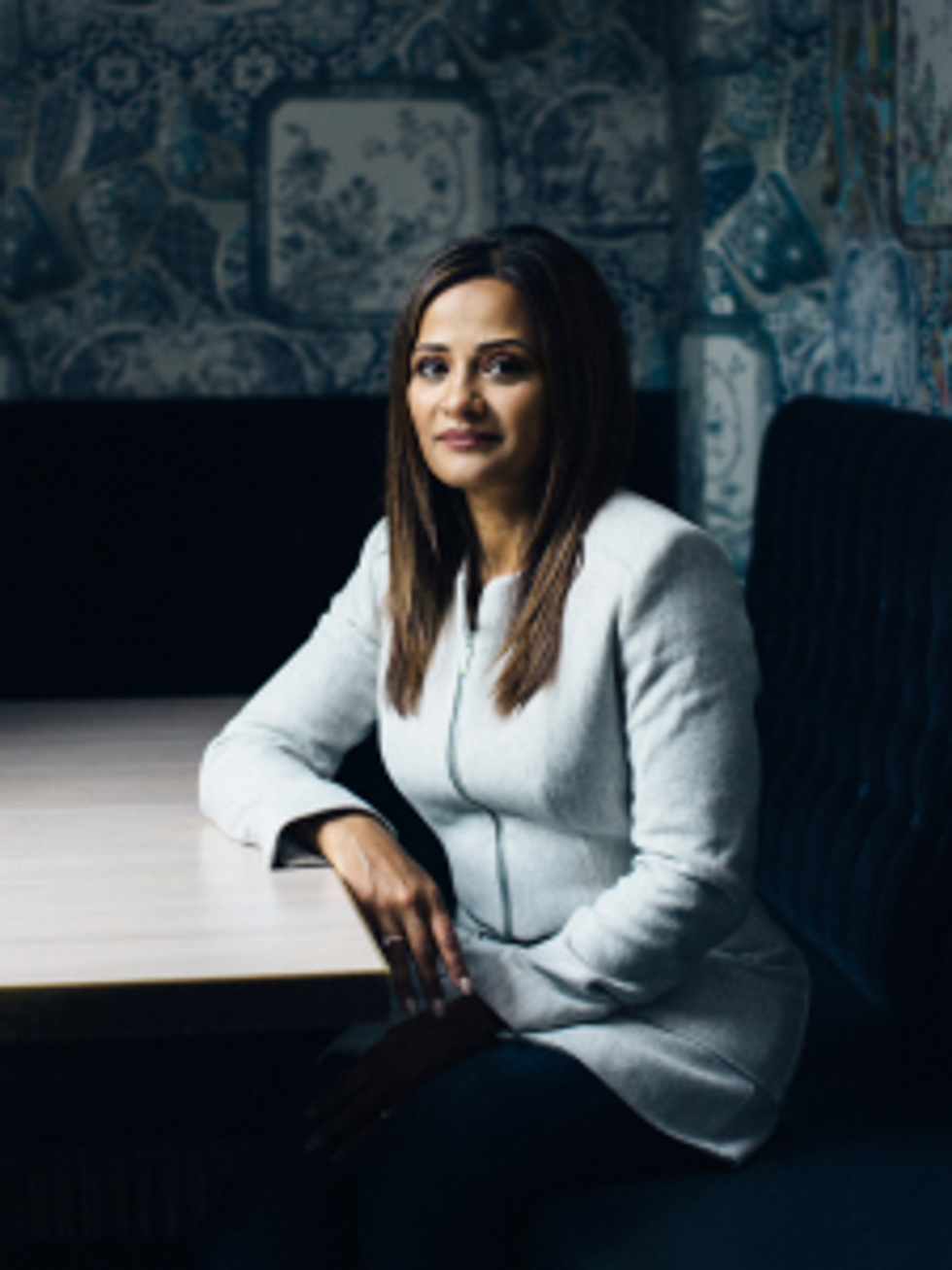SUCCESSFUL WOMEN SPEAK ABOUT THEIR LITERARY CAREER PATHS AND HOW OTHERS CAN FOLLOW THEM
BRITISH Asian authors have been dominating the literary landscape with stunning pieces of work in a wide array of genres.
These talented writers are helped by hardwor- king champions working behind the scenes.
Today there are more south Asian women in publishing than ever, who are making a mark and blazing a trail for others.
Eastern Eye went behind the scenes to meet some of these silent heroes to talk about their challenging work, advice they would give aspiring authors and tips for south Asian women wanting to work in publishing.
Sarah Shaffi
ACE writer Sarah Shaffi is like a publishing hero with multiple powers and a skilled freelance gun for hire. The accomplished writer chairs author events for festivals, bookshops and publishers, works on publishing related projects and has been a judge at various literary prizes.
She also manages and helps build major publishing websites, including for Penguin. Most importantly, she loves books and has used that to build an impressive career.
What is it that first connected you to books and the publishing industry?
I’ve always been a big reader. I was that child that spent Saturdays at the library, read at the dinner table (I still do) and hid upstairs on my birthday reading my new book. My career in journalism began in news, but then I started blogging about books and popular culture as a way to do a different kind of writing, and one that was just for me. As I was looking for a change at work, a friend alerted me to a job as a reporter at The Bookseller, the trade magazine for UK publishing. While there, I expanded out to do more freelance work and then made the decision to go full-time freelance.
What is the biggest challenge you have faced?
I still feel like a publishing ‘outsider’ having not started out in the industry. And while there are definitely some external pressures around, the biggest challenge can be to change my mindset sometimes and realise that it’s not actually a challenge.
What is the secret of making it in a male-dominated environment?
Coming from journalism, I’ve always worked in male-dominated environments, or places where men were in positions of leadership (although all of my best managers have been women). Generally speaking, and purely based on my experience, men require a little more managing up, and while we shouldn’t have to do it, as women we might often find ourselves in that position.
What top tips would you give?
They are the same as my tips for managing up. Be clear about what it is you need to do or need to achieve. Present a path or solution you think is most effective. Giving people too many choices when you know what is best, is a headache mostly for you. And don’t take any rubbish based around gender stereotypes (or any other stereotypes). Call it out. And if you’re nervous about how a male colleague is going to react, go down the route of asking them to explain their comment or point of view. They’ll soon see their own ridiculousness.
What advice would you give Asian women wanting to work in publishing?
Please do it, we need you! It’s so important for publishing to continue opening itself to a range of perspectives. There are so many different roles across publishing, so take a good look at what’s out there, and ask lots of questions. Find women whose work and careers you admire and get in touch to talk to them. I’ve yet to come across someone who wouldn’t be happy to help.
What advice would you give aspiring authors?
Keep writing. And then write some more. And make sure that you’re also reading. It sounds obvious, but the best writers are often readers.
What inspires you?
There are so many amazing women in my life who inspire me in my career, from those I’ve worked with to friends who I spend too much time talking to on WhatsApp, when we should be working. I’m also inspired, every single day, by wanting to make the industry inclusive. I loved reading as a child, but I don’t want any child to grow up not seeing themselves and their world in books, like I did.
Sandeep Mahal
LIKE many, Sandeep Mahal cultivated a deep relationship with reading and the power of literature through her local library. She first landed a job as a mobile library assistant and soon fell in love with the work of libraries in areas with massive levels of deprivation and few cultural opportunities.
Helping empower people through books led her to becoming director of Nottingham UNESCO City of Literature. Her wide-ranging role includes encouraging and amplifying stories, using literature to help young people and launching creative programmes. As chair of the International UNESCO CITIES of Literature Network, she leads a network of 39 cities that collaborate to ensure literature reaches as wide and diverse an audience as possible. She takes great pride in her admirable grassroots work.
Your work involves giving a voice to those who have been left behind. What are some of the challenges you face?
The devastating impact of the pandemic, climate crisis, refugee crisis and the Black Lives Matter movement has made me, like a lot of people in my industry, pause and reflect on our own privileges; and to think very deeply about the power and voice that we have and how we can use it, and crucially, to think about how we are going to accelerate change, and respond to the broader diversity of people. As one of the few senior Asian women working in the literature sector, I’ve been prompted to think anew about how I’m using my influence and speaking up for bolder transformation in a sector that I fell accidentally and passionately in love with.
What is the secret of making it in a maledominated environment?
I have been fortunate to work in an environment dominated by inspiring women who were determined to use their roles to help other women achieve more. When women support, listen and cheer other women, we make each other stronger. I see so much of it every day. I also think the more we share diverse stories and experiences, the more work we do to widen the scope of whatever it means to be a woman today. And that work never stops. I have learned so much these past few years from the younger people on my team, from my Youth Advisory Board and from my role as a trustee of the Women’s Prize Trust.
What advice would you give Asian women wanting to work in publishing?
Firstly, it’s very important to love what you do and think about what motivates you. So, a love of books is definitely something publishing companies look for. Find a role you can get passionate about. Ask yourself, “why you, why now, why this?” and spend time with people you can learn from and be inspired by. Networking is an effective way of doing this. Make contacts and hear about opportunities through Twitter and online events, organised by the Society of Young Publishers, Women in Publishing and Byte the Book. They all offer opportunities where you will be able to chat with others currently working in publishing in a friendly and informal setting. Meet people related to the industry, keep up to date with industry news, visit bookshops, festivals and libraries.
What advice would you give aspiring authors?
Importantly remember, writing is a very long-term game. Apart from raw talent, you need to work incredibly hard and have enormous amounts of stamina. So, take your time and make sure your book reflects you as a writer. Know what you want to say before the world starts listening. And be sure to have fellow travellers alongside you who can really help. Get someone else to look at your work before sending it to an agent and remember, you don’t have to struggle alone.
What inspires you?
Watching the journeys of young people in our city – sometimes I genuinely feel like my heart may explode with pride and happiness for them. Their resilience, strength, joy plus writing talent is an incredible thing to behold and teaches me so much about the stories and change they want to see in the world. I believe that from this energised and informed space we can grow critical young thinkers, who find joy in both the written and spoken word, and crucially, be inspired by writers that represent worlds beyond our own, and help our UNESCO mission of building a better world with words.
Perminder Mann
HAVING grown up in West London as the child of first-generation immigrant parents, from India, Perminder Mann spent long summers lost in stories as money was scant and they never went away on family holidays.
She says stories allowed her to learn about the world, have hopes and dreams, along with opening up new possibilities and build her English vocabulary, which was crucial as her first language was Punjabi. This love for books stayed and post-university helped her land a job at Macmillan Publishing in their special sales department. She hasn’t looked back since and is today the CEO of Bonnier Books UK and absolutely loves her job.
Although Perminder is the only female CEO of a major book publisher, she is delighted the industry is female dominated and is looking for ways to reach out to young people to achieve a more balanced workforce tomorrow.
Tell us about the work you do?
My responsibility is building a modern, sustainable publisher that delivers on its business plan. Our parent group Bonnier Books in Sweden is a 200-year-old family-owned publisher, and so we can take a long-term view. As a result, I spend a lot of time looking towards the future and making sure we’re ready for the opportunities that lie ahead. I also get to read a lot, so the little girl inside of me that spent her summers in the local library is absolutely thrilled.
What is the biggest challenge you are facing?
A big challenge in our industry at the moment is how we stay relevant. Earlier this year, we launched our inaugural Diversity & Inclusion Action Plan, with the aim of increasing representation across our workforce and publishing lists. As a publisher, stories are our trade, so we have a deep responsibility to ensure we represent, and ultimately, inspire all readers and listeners in our books. To succeed in this, we need to build a working environment where everyone has the potential to thrive. This means widening our doors and reaching out to those who might not have instinctively considered a career in our industry.
What advice would you give Asian women wanting to work in publishing?
Firstly, I’d say this is an industry where you can build a successful and rewarding career. It’s often said that publishing is extremely hard to break into and that can be true of editorial. But the advice I always give people is to research the different roles available. There’s more to publishing than creative roles such as editorial and design. There are so many other interesting roles, including in rights, production and sales.
Would you give some recommendations?
Personally, I went through the sales route. I’d recommend taking the time to research the different roles available and considering where your skillset would add the most value. If it really is editorial that you have your heart set on, get to know the book market and what sells. A love of books is great, but it won’t carry you through alone – publishing is a business like any other and a commercial insight into the industry will help you stand out in the crowd.
What advice would you give aspiring authors?
There are so many options for authors today, but I’d recommend finding yourself a good literary agent – the Writers & Artists Yearbook is a fantastic resource for this. An agent will know the market for your book and be able to pitch your book to the right publishers, and major publishers will generally only accept submissions through an agent. An alternative is self-publishing your book or publishing it through what we call ‘a digital-first imprint’, where, depending on the volume of digital sales, the publisher may also publish your book in print and audio. We’re very excited to be launching our new digital-first imprint, Embla Books, this year. The beauty of digital-first is that the success of a book cannot be limited by shelf space, and the digital platform enables insight-led, agile publishing.
What inspires you?
I’m inspired when I can see that I’m impacting change, whether that’s with an author, a colleague or friend. I’m very lucky to work for a company that believes in purpose beyond profit and where I have a platform I can use for good.






